8 Most Effective Foods To Fight Thyroid Disorders!
By Dr. Akash N. Shah +2 more

Get,

to manage your symptom
Get your,


4 Cr+ families
benefitted

OTP sent to 9988776655



You’ve successfully subscribed to receive
doctor-approved tips on
Whatsapp

Get ready to feel your best.

Hi There,
Download the PharmEasy App now!!


Register to Avail the Offer
Send OTPBy continuing, you agree with our Privacy Policy and Terms and Conditions

Hi There,
Sign up on PharmEasy now!!
Trusted by 4 crore+ families

OTP sent to 9988776655



You have unlocked 25% off on medicines




Code: NU25

Comments


Leave your comment here
By Dr. Akash N. Shah +2 more
Table of Contents
The thyroid gland helps to regulate the metabolic processes of the body. It produces thyroid hormones that regulate many biological functions and ensure proper health is maintained. When the thyroid gland becomes sluggish or overactive, it can lead to many problems1.
A healthy diet may help optimize thyroid gland function at times. Many components in our daily diet can help our thyroid gland stay balanced or achieve a state of equilibrium if it is not functioning correctly.
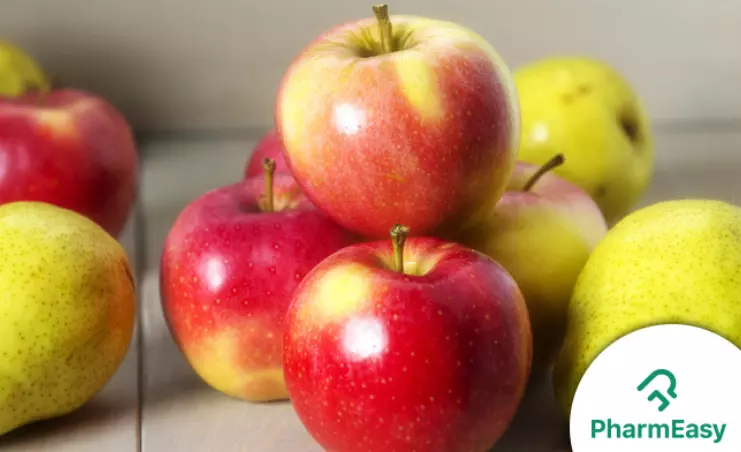
Before we take a look at the best foods to consume in order to fight thyroid disorders, it will be best to bust some common myths surrounding thyroid diet:
Did you know?
These vegetables include those like broccoli, cauliflower and kale, and they might interfere with how your thyroid gland uses iodine as it plays a role in hormone production inside the thyroid gland. The truth is that you should eat these veggies as they are a part of a healthy diet. Those having a tendency to form goitre should restrict their intake as suggested by their treating physician or Endocrinologist.
There’s no need to take these supplements if you are living in a country where other items have iodine in them, like table salt.
This is a misconception, as a gluten-free diet cannot help or cure Hashimoto’s thyroiditis in any way. Those individuals with certain medical conditions might derive benefits from such a diet
Did you know that beauty products can affect thyroid health? It is believed that plasticizers found in cosmetic products might affect the regulation of thyroid hormones and alter hormone levels2.
Dr. Smita Barode, B.A.M.S, M.S.
A weight gain of 5 to 7 pounds may be linked to an underactive thyroid, but beyond this, the thyroid has nothing to do with a significant weight gain.
Like everyone else, it is important to have a healthy and balanced diet. Diet alone cannot cause or cure thyroid-related problems.
Researchers say Goitre and/or hypothyroidism may occur as a result of eating soybeans, cauliflower, or cabbage. These are believed to be goitrogenic foods.
Dr. Rajeev Singh, BAMS

Dairy products, mainly yoghurt, are very nutritious and help to provide iodine to some extent. Iodine is needed for the optimal functioning of the thyroid gland3.
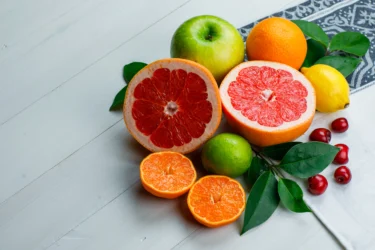
Apples, pears, plums and citrus fruits are abundant with pectins15, which might help with detoxifying the body of mercury4. It is postulated that mercury exposure from seafood might at times contribute to the disruption of thyroid gland function5.
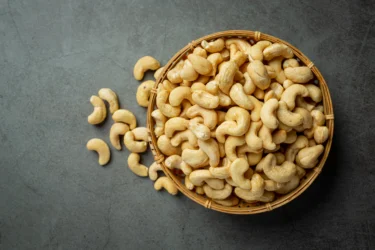
Pumpkin seeds, sunflower seeds and nuts are rich sources of zinc6. Low levels of Zinc have been associated with thyroid problems7. Add to the salads or munch on these as snacks to replenish your body with zinc.
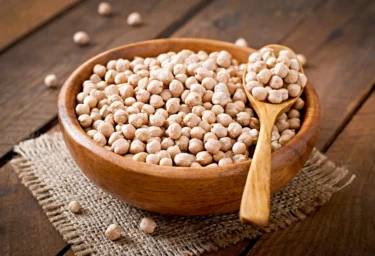
Beans and legumes are rich, not just in Zinc but fibre as well. These help to regulate the digestive system, especially bowel movement and prevent constipation8.

Hail the Orient. Green tea is known all over the world as an aid to boost metabolism. Green tea has catechins, a kind of antioxidant that might prompt fat cells to release the fat and help the liver burn off the excess fat9.
Also Read: 17 Protein-Rich Foods For a Healthy Life
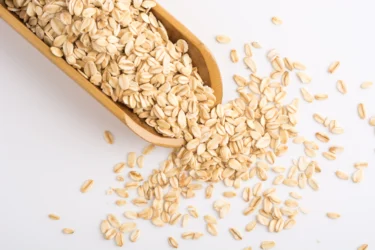
The body uses up more energy to digest whole grains. The metabolism might increase with the extra fibre as the body has to work harder to break down the whole grains. Try to eat oats, brown rice, sprouts, sprouted grain bread and quinoa as a part of a healthy diet routine.
Just like Zinc, Selenium is believed to be another micronutrient that is essential for healthy thyroid functioning. Selenium is present in food items such as eggs, fish, meat, cereals and nuts10.
Dr. Siddharth Gupta, B.A.M.S, M.D (Ayu)
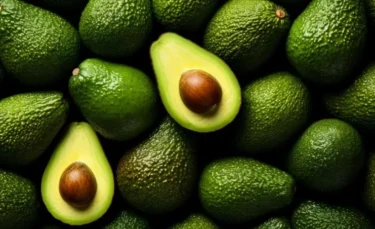
Avocados are almost the wonder food of modern nutrition. Packed with antioxidants, good fats, fibre and essential nutrients, avocado is a good choice for those who have an imbalanced functioning thyroid, to support overall health and wellbeing.

Broccoli is rich in calcium and vitamin C. It is rich in fibre. Broccoli when consumed in very large amounts, can potentially add goitrogens and might cause disturbance in those with underlying iodine insufficiency11, 12. However, when consumed in moderate amounts, it can help with a healthy metabolism pattern and overall well-being.
Consult your dietician or your doctor before you incorporate the above foods into your diet.
Also Read: Typhoid – What to Eat and What to Avoid?
Apart from the above, here are some other things to be mindful of if you have a thyroid problem:
Also Read: What to Eat and What to Avoid in Anal Fistula
Some ways to keep hypothyroidism under a healthy check are as follows:
– Include aerobic exercises that make you sweat, such as cycling, swimming and running.
– Better Stress management is essential for better overall health and thyroid hormone-related imbalances
– Follow a good power-down routine every night by ensuring 6-7 hours of quality sleep to balance hormone levels.
– Stay on track with your thyroid medications.
If you have been diagnosed with hypothyroidism, you should avoid foods like tofu, soy, fried and fatty foods, sugary foods, processed and packaged items and alcohol.
Some tell-tale signs that you might be having an underlying condition of hypothyroidism are14:
– Fatigue
– Hypersensitivity to cold
– Dry skin
– Puffy face
– Hoarseness
– Muscle weakness
– Weight gain
– Impaired memory
– Slow heart rate
Disclaimer: The information provided here is for educational/awareness purposes only and is not intended to be a substitute for medical treatment by a healthcare professional and should not be relied upon to diagnose or treat any medical condition. The reader should consult a registered medical practitioner to determine the appropriateness of the information and before consuming any medication. PharmEasy does not provide any guarantee or warranty (express or implied) regarding the accuracy, adequacy, completeness, legality, reliability or usefulness of the information; and disclaims any liability arising thereof.
Comments

Leave your comment...

View all comments(2)
You may also like
[…] Read More: 8 Best Foods for Thyroid Patients to Include in their Diet […]
I have done tyroid sugery, my one gland was big that has been removed but my other gland was good tht too has been removed, so wht food should i. Eat fr long living, i a seamen n i hv kids so i hv to work,